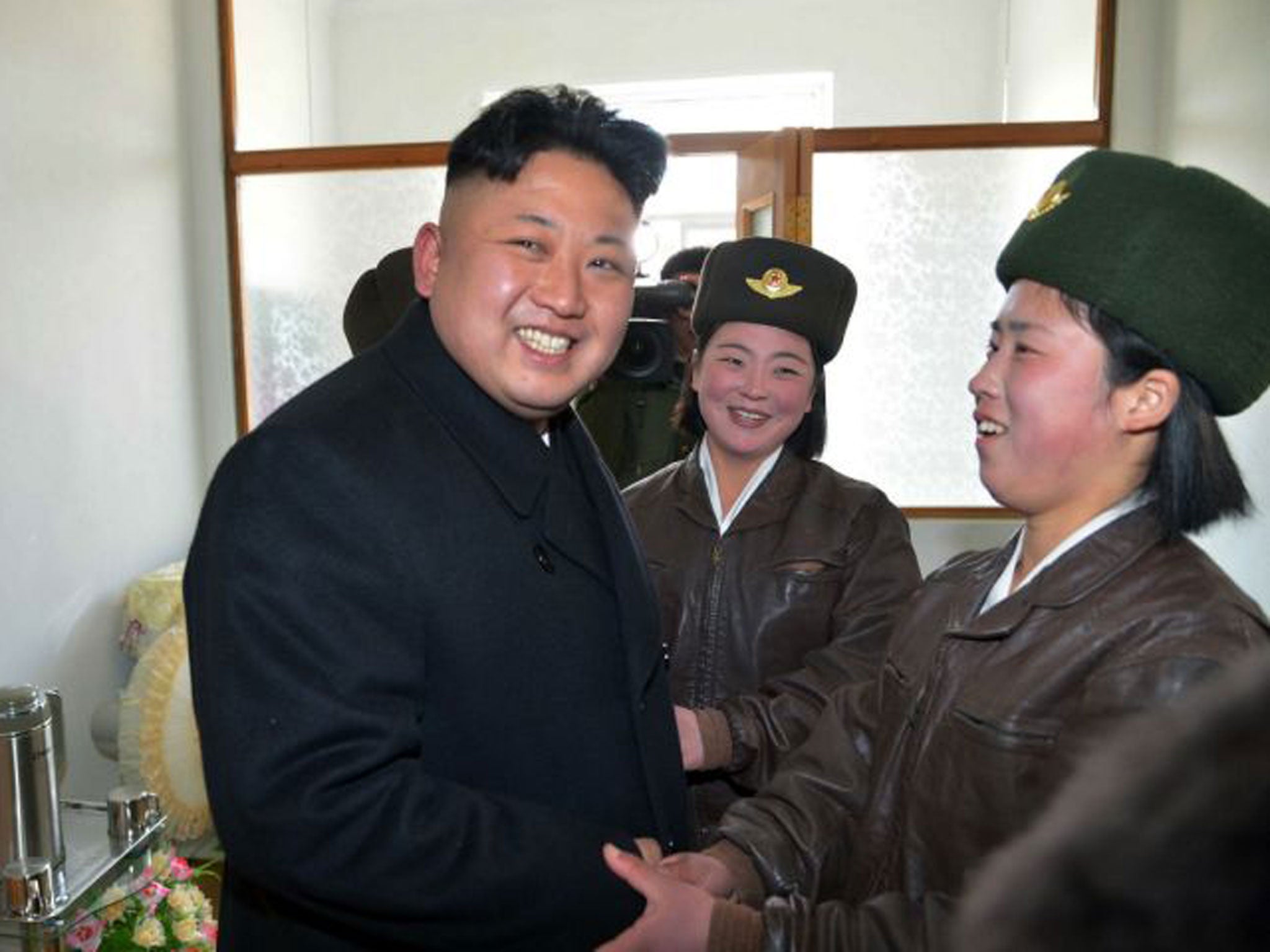BBC 'can make a difference' in North Korea - by broadcasting World Service programmes in Korean
'The humanitarian need for a BBC Korea Service broadcasting to the whole peninsular is clear,' says journalist John Sweeney

Your support helps us to tell the story
From reproductive rights to climate change to Big Tech, The Independent is on the ground when the story is developing. Whether it's investigating the financials of Elon Musk's pro-Trump PAC or producing our latest documentary, 'The A Word', which shines a light on the American women fighting for reproductive rights, we know how important it is to parse out the facts from the messaging.
At such a critical moment in US history, we need reporters on the ground. Your donation allows us to keep sending journalists to speak to both sides of the story.
The Independent is trusted by Americans across the entire political spectrum. And unlike many other quality news outlets, we choose not to lock Americans out of our reporting and analysis with paywalls. We believe quality journalism should be available to everyone, paid for by those who can afford it.
Your support makes all the difference.One of the world’s experts on North Korea has called on the BBC to “be part of the solution” in fighting human rights abuses under Kim Jong-un’s repressive regime by initiating Korean-language broadcasts by the BBC World Service.
Michael Kirby, the eminent retired Australian judge who chaired a recent Commission of Inquiry (COI) on North Korea for the United Nations Human Rights Council, told The Independent that the BBC could make a difference to the lives of people in “a country that has been largely cut off from the rest of the world”.
Speaking in a personal capacity, Mr Kirby said the BBC was in a position to make a difference in North Korea.
“Because the BBC World Service is still such a globally respected voice, the revelations in the recent UN COI report demonstrate the special needs, and particular utility, of providing the BBC to the Korean peninsula,” he said.
The COI’s report last month identified “unspeakable atrocities” in North Korea and found there was “an almost complete denial of the right to freedom of thought, conscience and religion” in the state. The findings, which Mr Kirby said demanded “attention from the international community”, made headlines around the world.
He told The Independent: “The strict controls on sources of information in North Korea, revealed in the COI report, surely add to the arguments for an increased outreach by the civilised world to the people of North Korea. With its hard won reputation for truthful reporting, fair coverage and proper priorities, the BBC has a special potential to be part of the solution.”
There is a growing voice in Westminster for a BBC Korea service, broadcasting from South Korea, and on Tuesday at a meeting in the House of Commons a “pilot” BBC Korean show will be played to demonstrate how such a service might sound.
Funding of the World Service has passed from the Foreign & Commonwealth Office to the BBC. Previous BBC studies have identified problems in providing a Korean service, especially in relation to the difficulties of the North Korean population tuning in and defying the ban on listening to foreign broadcasts.
Foreign Secretary William Hague said recently that it was “not currently possible for the World Service to offer a meaningful, effective and cost-effective service”. But last week Foreign Office minister Hugo Swire gave renewed hope to campaigners for a Korean service when he said: “We have approached the BBC and are waiting for its detailed response.”
The Independent has seen a confidential report on the viability of a BBC Korean service written by the investigative journalist John Sweeney, who infiltrated the country last year by posing as an academic and filming a documentary for Panorama. “The humanitarian need for a BBC Korea Service broadcasting to the whole peninsular is clear,” he concluded.
Mr Kirby said his appreciation of the impact of the BBC’s reporting stemmed from his own experience of listening to the “Radio Newsreel” as a schoolboy in Sydney in the 1950s. “It rescued me from a purely national or local perspective of news that was of concern to me. It helped to make me a citizen of the world,” he said.
Although he acknowledged that he had “no knowledge of the competing priorities of the BBC and the cost factors involved”, Mr Kirby said the BBC had the potential to reduce human rights violations in North Korea. “The path to greater human rights respect lies through greater awareness of the world, and of their own country, on the part of the population of North Korea.”
Lord Alton of Liverpool, one of those campaigning for a BBC Korea Service, said: “It seems unbelievable that the BBC World Service, which has been a game changer from the former Soviet bloc to Burma, does not play its part in breaking this information blockade. I hope they will hear Michael Kirby's message and respond positively.”
The BBC said: "We agree that there is a severe lack of media freedom in North Korea and an acute need for more choice and variety of media content. However, the available research suggests that there are strict controls in the North on what people are allowed to listen to or watch, difficulty in obtaining radios and a complete lack of internet access – which we confirmed when a senior delegation visited South Korea earlier this year expressly to investigate the possibilities Given these significant barriers and having given this careful consideration, we do not believe it would be cost effective and viable to broadcast existing or new content to North Korea at the present time but we will keep our position under review and look seriously at any new opportunities that emerge.”
Join our commenting forum
Join thought-provoking conversations, follow other Independent readers and see their replies
Comments